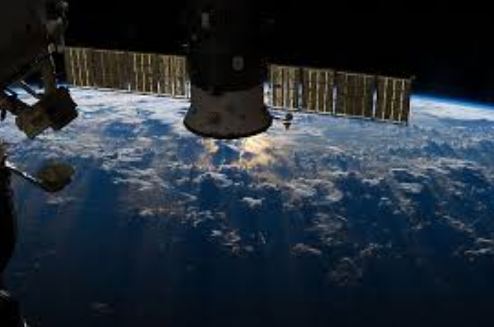Our oceans are undoubtedly incredible wonders of nature. It is vast, deep, and it is home to thousands of marine animals. The enormous size of the world’s ocean is a whopping 361.9 million square kilometers or 139.7 million square miles. This massive size covers roughly 70.9% of our planet’s surface and has a volume of approximately 1.335 billion cubic kilometers or 320.3 million cubic miles. With all of these numbers, we can say that our ocean is truly a magnificent basin of water on the Earth’s surface.
Despite the vastness of our ocean, it holds several other features and natural phenomena, which is still a mystery to us. Because of the numerous aspects found in this body of water, scientists devoted to the study of the ocean in a branch of science called oceanography.
What is exactly is oceanography? How did it evolve into the form of science that it is today? In this article, we are going to look into the study of the ocean, as well as its origins.
What is Oceanography?
As mentioned earlier, oceanography is the branch of Earth science devoted to the study of oceans. It aims to study and explore the ocean to gain a deeper understanding of its properties.
Also known as oceanology, the study of our planet’s oceans is focusedon gathering information about its physical and biological aspects. Evidently, oceanography covers a broad scope of topics to have a more in-depth knowledge of the ocean. The diverse subjects of oceanography include ecosystem dynamics, ocean currents, plate tectonics, the geology of the seafloor, and many other issues related to the ocean.
As shown in the field of study covered by oceanography, we can see that it is heavily influenced by several other branches of science, such as chemistry, biology, geology, etc. The study of the ocean branches out into more specific areas of study to gain further knowledge and gather information more efficiently across the ocean.
The massive size of the ocean led to the division of oceanography into four branches:
- Biological oceanography – also known as marine biology, is the branch of science devoted to the investigation of the ecology of marine organisms. This investigation is merely based on the physical, chemical, and geological properties of the ocean environment, and the biology of each marine organism.
- Chemical oceanography –this branch of oceanography aims to the understanding of the ocean’s chemical properties. This field of study is mainly focused on the study of the properties of seawater, along with any changes that occur over time.
- Geological oceanography – based on the name itself, it focuses on the study of the geology of the ocean floor. The main topic of geological oceanography is plate tectonics and paleoceanography.
- Physical oceanography –is the study of the ocean’s physical attributes, such as surface waves, internal waves, surface tides, internal tides, and currents.
What is the origin of oceanography?
Oceanography came a long way for it to develop the stage that it is today. We can trace back the earliest accounts of oceanography to ancient civilizations, although observations of the sea and ocean were already practiced during pre-historic times.
Records show that the first observations of the ocean came from the Greek philosophers, Aristotle and Strabo. Besides their observations, there was no other study nor speculation about the ocean during that time.
The science of oceanography came to advancement during the 16th century when the great Portuguese mathematician Pedro Nunes published the ‘Treatise of the Sphere.’ His work consists of his definition of the loxodromic curve, which is the shortest course between two points on a surface of a sphere.
During the late 18th century, oceanography is gradually starting to gain more scientific explanation about its properties. During this time, the English scientist James Rennel wrote the first scientific books on oceanography. His work included detailed information on the current flows of the Atlantic and Indian oceans, which is why he was often considered as the pioneer of oceanography.
The study of the ocean continued to develop over the years, and it was in the 19th century when the American oceanographer Matthew Fontaine Maury made his contribution to the development of the subject. He was the author of ‘Physical Geography of the Sea,’ which was one of the most comprehensive works about oceanography. His works made a significant impact in the field of oceanography and later on became an influence on future scientists devoted to the study of the ocean.
